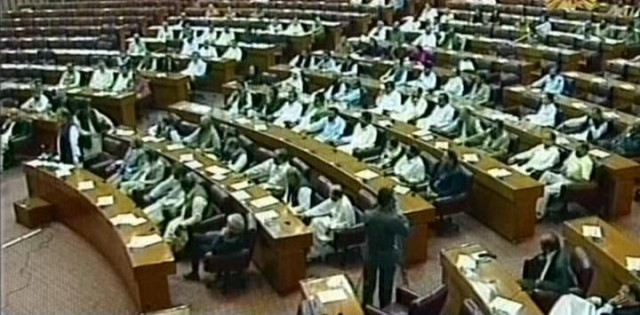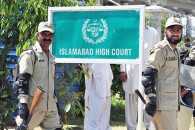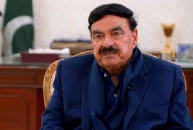Electoral reforms bill tabled – at last
The bill aims to strengthen the ECP’s shape and structure to ensure credible polls

The bill, The Election Bill, 2017, aims to consolidate eight election laws which will stand repealed after its enactment. The bill was presented in the lower house by Minister of Law and Justice Zahid Hamid.
While presenting the bill in the house, Hamid said: “It is a historic bill which was drafted after two-and-a-half-years long consultations among all stakeholders.”
The Election Bill, 2017: parliamentary panel finalises draft law on electoral reforms
Highlighting main features of the bill, he said the ECP has been strengthened, made fully independent and autonomous. He said for the first time, the ECP has been given authority to formulate its own rules. The polls supervisory body shall now prepare an action plan six months before general elections and it shall delimit constituencies after every census.
“Citizens who have obtained CNIC from NADRA will be automatically enrolled as voters. As far as practicable, distance between a polling station and the voters assigned to it has been reduced to 1km.
“Nomination form has been simplified and the same form has been prescribed for candidates for all seats,” he further said.
He said printing of ballot will be based on a new formula and number of ballot papers per polling station shall be equal to the number of voters at the polling stations, rounded off to the nearest hundred.
“The election dispute resolution system has been made more expeditious and result-oriented while a complaint resolution procedure has also been formulated in the bill,” he added.
Urgent need for electoral reforms
He said maximum limits of election expenses have been rationalised while the functions of caretaker government confined to day-to-day routine, non-controversial matters. “The caretaker setup shall not take major policy decisions except on urgent matters,” he added.
He said the electoral roll has been a very important issue and under this bill, data of NADRA would be communicated to the ECP. He said five per cent of the tickets of a political party would be allotted to women. He expressed hope that the House will pass the bill unanimously.
The PTI’s Shah Mehmood Qureshi said a total of 93 meetings were held on this issue, adding that the presented reforms were need of all the stakeholders. He said still there were suggestions which could not be taken into consideration in this bill and the PTI submitted a dissenting note to this effect.
“Addressing the unsatisfied recommendations will further narrow the gap regarding the bill,” he added.
Pursuant to motions adopted unanimously by both Houses, the National Assembly speaker in consultation with the Senate chairman and the parliamentary leaders constituted the Parliamentary Committee on Electoral Reforms (PCER) on July 25, 2014 to evaluate shortcomings in the existing electoral process and to make recommendations for holding free, fair and transparent elections.
The PCER constituted a sub-committee to examine and make recommendations. The sub-committee presented its final report on July 19, 2017 to the PCER along with a draft bill which was approved by it on July 21, 2017. Earlier Senator Ishaq Dar presented the report of PCER in the House.
The government also tabled the Regulation of Generation, Transmission, and Distribution of Electric Power (Amendment) Bill 2017 and the Private Power and Infrastructure Board (Amendment) Bill 2017 besides introducing the SBP Banking Service Corporation (Amendment) Bill 2017. Another bill, The National University of Technology Bill 2017 was also presented in the House.
Briefing on serious challenges
Later on Leader of Opposition Khursheed Shah said former Interior Minister Chaudhry Nisar had claimed that only four to five persons were aware of the serious threat the country was facing.
“Former PM Nawaz Sharif has also been making similar hints. [If this is the case, then] parliament should be taken into confidence through an in-camera briefing,” he demanded.
Gulalai’s speech and PTI’s protest
Earlier when PTI’s rebellious MNA, Ayesha Gulalai, was given floor on a point of order, the PTI members started a protest by chanting slogans and thumping desks.
The PTI’s chief whip Dr Shireen Mazari was of the view that Gulalai was no longer an MNA as she had left her party publicly. She was of the view that Gulalai’s status in the House was that of a ‘stranger’ and therefore she should not be allowed to speak.
In her speech during which the PTI MPs continuously protested, Gulalai said she would not resign from the National Assembly as she was elected on merit and would continue to serve as an MNA. She said she gave voice to weak women, adding that she would never compromise on integrity and honour.
“Allegations were levelled against me and my family and I have received death and acid attack threats. I want to tell the PTI members that they too can face the same treatment in the future,” she added.



















COMMENTS
Comments are moderated and generally will be posted if they are on-topic and not abusive.
For more information, please see our Comments FAQ